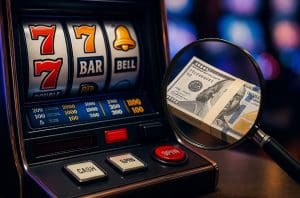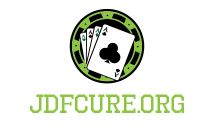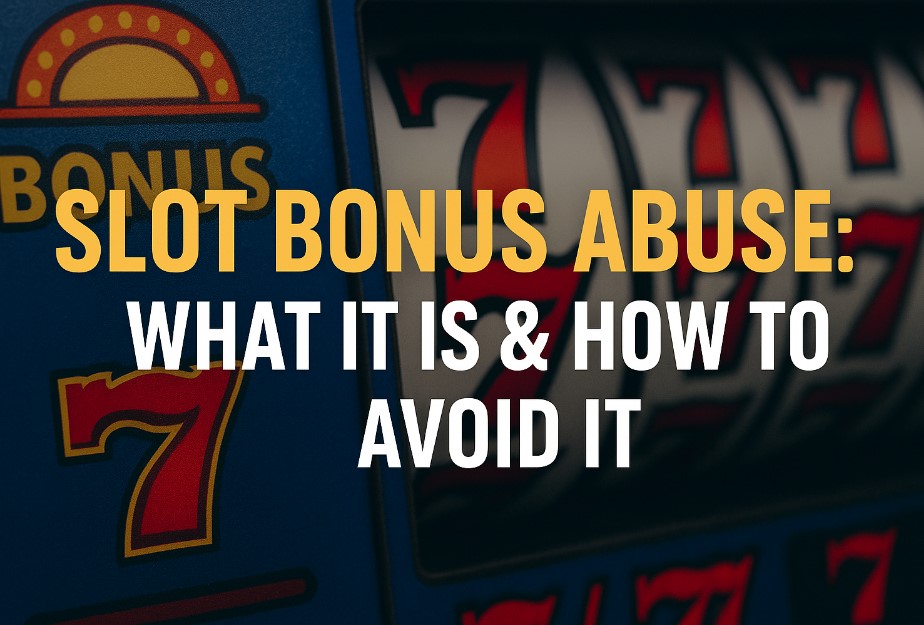Online casinos dangle bonuses like candy at a fair. Free spins, welcome packs, reload deals—sometimes it feels like there’s a parade of promos waiting just for you. And when used fairly, they’re genuinely fun and can stretch a bankroll longer than you’d expect. The problem? Some folks push the line from clever to downright sneaky. That’s where slot bonus abuse creeps in. It’s not just a headache for casinos—it can come back to bite players too.
What Is Slot Bonus Abuse?
Slot bonus abuse is basically gaming the system. Instead of using promotions as intended, players twist the rules to squeeze guaranteed profit or edge out risk. Think of it as stuffing your pockets at an “all you can eat” buffet and walking out—it’s not illegal in the strictest sense, but it’s absolutely against the house rules.
Casinos design promotions knowing they’ll lose a little to some winners, but they expect balance across thousands of players. When someone tries to cheat the math, it messes with the whole setup. I once met a guy who proudly admitted he’d opened five accounts at the same casino under different email addresses. For about two weeks, he thought he’d hacked the system. Then the casino asked for ID and—poof—his balance disappeared along with his access.
Common Tactics Used for Bonus Abuse
The creativity of bonus abusers is almost impressive, if it weren’t so destructive. Operators have seen every trick in the book, and some of them read like plot twists from a heist movie.
Multi-Accounting and Fake Registrations
This one’s practically the bread and butter of abuse. Someone signs up under different names, maybe using a friend’s details or even outright stolen IDs, to grab the same juicy welcome bonus multiple times. Some people even rotate VPNs like socks, hoping to hide their tracks. Casinos aren’t naive—they cross-check IPs, payment methods, and patterns. Sooner or later, the jig’s up.
I remember a buddy swearing he’d cracked the code because he managed to use his cousin’s details to register. He got the spins, sure, but couldn’t withdraw a dime because the casino wanted a bank statement in the cousin’s name. Awkward Thanksgiving that year.
Bonus Hunting and Arbitrage Betting
Bonus hunters are like nomads. They don’t settle; they roam from casino to casino, scooping up promos, playing just enough to clear wagering requirements, and leaving. It’s not “fun gambling” at all—it’s spreadsheet gambling.
Then there’s arbitrage betting, which is even nerdier. A player hedges bets across platforms, making sure no matter what happens, they pocket a sliver of profit. Smart? Maybe. Sustainable? Absolutely not. Casinos spot it quickly and start shutting doors.
Chip Dumping and Collusion
In poker rooms, chip dumping is a known scam. But in slots or promotional events, collusion can still rear its head. Imagine two pals signing up for a tournament: one tanks deliberately, funneling bonus-fueled winnings to the other. Casinos track these lopsided outcomes, and the data doesn’t lie. You can only “accidentally lose” so many times before someone in compliance raises an eyebrow.
Risks and Consequences of Bonus Abuse
Here’s the thing most abusers forget: casinos are not passive bystanders. They fight back hard.
The obvious first risk is having your account suspended or outright closed. I’ve seen players scream in forums about their “unfair treatment,” only to reveal—oops—they had four active accounts. That’s not injustice; that’s getting caught.
Withdrawals can get stuck in limbo too. Sometimes casinos stall while their anti-fraud teams dig deeper. Weeks of waiting, only to be told your balance is forfeited—it’s a nasty feeling. And once your name is on a shared blacklist (yes, casinos share data), good luck signing up anywhere else.
The extreme cases? Legal heat. If fake IDs or stolen cards come into play, suddenly you’re not just facing lost spins—you’re facing fraud charges. And that’s a whole different ballgame.
How Casinos Detect and Prevent Bonus Abuse
 It used to be easier to sneak through. Years back, a determined bonus hunter could juggle multiple casinos without raising much suspicion. Not anymore. Operators now use fraud detection tools that watch everything: device fingerprints, IP clusters, transaction patterns.
It used to be easier to sneak through. Years back, a determined bonus hunter could juggle multiple casinos without raising much suspicion. Not anymore. Operators now use fraud detection tools that watch everything: device fingerprints, IP clusters, transaction patterns.
Casinos also add tripwires in their terms—like maximum bet limits, excluded slots, or strict rollover requirements. Ever wonder why that “low house edge” slot is excluded from a bonus? Because abusers used to hammer it nonstop. They’ve closed those doors one by one.
KYC (Know Your Customer) checks are another safety net. The dreaded “send us your ID” email isn’t just bureaucracy—it’s the firewall against fake accounts. Once you’ve been flagged, your chances of cashing out are basically zero.
Why Slot Bonus Abuse Hurts Both Players and Casinos
It’s tempting to think: who cares, the casino has plenty of money. But here’s the rub: abuse doesn’t just cost operators—it spoils the party for everyone else.
Casinos tighten promotions when they’re burned. Remember when some sites used to hand out 200 free spins with barely any strings attached? Those days are rare now because too many players gamed the system. The honest majority ends up with watered-down bonuses, longer wagering requirements, and endless verification hoops.
One friend told me she stopped claiming bonuses altogether after a couple of bad experiences where casinos froze her account “for checks.” She hadn’t done anything wrong, but the environment had grown so suspicious that everyone became collateral damage.
Practical Tips for Avoiding Slot Bonus Abuse
Not every misstep is malicious. Sometimes players fall into grey areas without realizing it. A few simple habits can keep you clear of trouble:
- Actually read the bonus terms—yes, the tiny print. Those lines about “max bet $5” or “excluded games” matter more than you think.
- Stick to a single account. Even if you’re tempted to test the system with a second one “just for fun,” it’s not worth the risk.
- Play naturally. Dumping your whole balance into max bets only after hitting a win screams “abuse” to casino systems.
- Keep your documents handy. Casinos are quicker to process withdrawals when your info lines up cleanly.
- Think of bonuses as a treat, not a paycheck. If you go in expecting to beat the system, frustration is almost guaranteed.
Responsible Gambling and Bonus Management
Here’s an honest truth: the thrill of a bonus often vanishes the moment you start treating it like an obligation. Wagering requirements can drag, and grinding them out robotically isn’t anyone’s idea of fun.
Responsible gambling practices—setting play limits, knowing when to stop, keeping your focus on entertainment rather than profit—line up neatly with avoiding abuse. The mindset shift helps. If you see bonuses as a little extra sprinkle on top rather than a loophole to exploit, you’ll never find yourself crossing the line.
I once cashed out a small win from a modest reload bonus, and it felt satisfying because it wasn’t about “beating the system.” It was about stretching a fun evening a little longer. That’s where the real value lies.
Frequently Asked Questions About Bonus Abuse
What counts as bonus abuse in slots?
It’s anything that breaks the terms or tries to game promotions unfairly. Multi-accounting, collusion, and abusing wagering quirks all fall under this.
Can casinos confiscate winnings if abuse is suspected?
Absolutely. Most terms give them full rights to void winnings if they believe bonuses were misused. It doesn’t matter how much you won—gone is gone.
Is bonus hunting illegal?
Not usually, but it’s frowned upon. While you might not face police at your door, casinos can ban you across networks, and that hurts long term.
How do casinos detect fake accounts?
Through KYC checks, IP tracking, and fraud detection software. Even using a roommate’s Wi-Fi can sometimes trigger suspicion if accounts overlap.
How can I use bonuses safely?
Stick to one account, read terms, and play within limits. When in doubt, ask support—seriously, a quick chat message can save you from a world of hassle.


